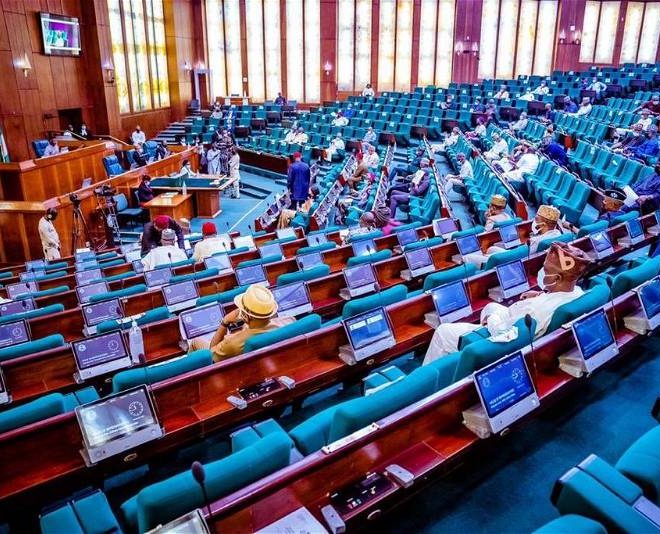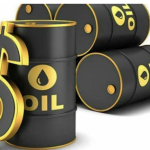Major cement producers have been requested to submit tender documents detailing their cost of production in order to support the price of cement on the market by the Joint Committee of the House of Representatives, which is looking into the country’s arbitrary rise in cement prices.
In order to determine a fair price of cement for all Nigerians, the committee decided to visit the companies’ production plants after reviewing their books to determine the cost of production.
Inquiring about Dangote Cement Company and Lafarge Africa PLC in Abuja on Friday during a public hearing, Representative Jonathan Gaza (APC-Nasarawa), the Chairman of the Joint Committee, made the demand.
According to him, the committee is considering the production costs incurred up until 2020, which helps to explain why cement is currently priced over N10,000 in the majority of the nation.
According to him, the enterprises have to disclose their average daily output of cement from 2020 onwards as well as their average daily use of coal, gas, gypsum, limestone, clay, and laterite.
Gaza added that the enterprises should disclose details of all imported components for the production of cement and their prices from 2020 to date. The senator stated that the corporations should also submit data about local components for the production of cement and their prices in naira and dollars, if any, in the period under review.
In addition to their audited accounts, bills of lading, and customs duties paid within the time under consideration, he said the enterprises should submit an overview of the monthly pricing and volume of cement produced from 2019 to date.
Gaza further demanded that the businesses submit information about tax breaks and other benefits received, as well as specifics about the contracts for gas and explosives.
Despite being able to obtain the majority of its raw materials domestically, Dangote Cement Company has continued to make increasing profits in the nation, according to committee member Rep. Dabo Ismail (APC-Bauchi State).
According to him, the business reported a N524 billion profit in 2022, N553 billion in 2023, and N166.4 billion in revenue so far in 2024.
According to the legislator, there is no reason why Nigerians should suffer as a result of cement price increases while manufacturers profit handsomely.
95 percent of production costs are imported or related to foreign exchange, according to a statement made earlier by Mr. Arvind Pathack, Group Managing Director (GMD) of Dangote Cement Company.
He clarified that the price of key cement inputs, such as gas, AGO, gypsum, imported coal, spare parts, new trucks, tires, and gasoline, had increased by 100 to 33%.
Pathack stated that the company’s contracts requiring access to gas and explosives require payment in dollars. The company claims that the Central Bank of Nigeria’s (CBN) provision was insufficient to fulfill demand, so they additionally source from the parallel market and engage in overseas sales.
He claims that poor state of important highways causes a number of logistical problems, such as longer delivery times, more vehicle maintenance, and greater delivery costs.
The GMD clarified that massive forex losses amounting to N150 billion annually, along with loan interest rates of thirty percent, had been caused by insufficient foreign exchange to settle trade obligations.
According to him, among numerous other issues like public electricity supply and instability, there has been a devaluation of the naira by more than 220 percent between May 2023 and June 2024.
According to Pathack, the cost of cement climbed by 166% between 2023 and 2024, while the cost of building materials such as reinforcing, granite, and aluminum windows increased from 177% to 283%.
According to him, the average cost of cement sold was N7,200, and any price beyond N10,000 was the result of retailer labor, over which the corporation had no influence.
He claims that a bag of cement costs $7.8 in Benin, $6.6 in Togo, $7.8 in Ghana, and $4.4 in India when converted to dollars, but Nigeria sells its bags for $4.43, making it one of the least expensive in Africa.
In an effort to lower the cost of cement in the nation, the committee chastised the businesses for not looking at their operations and policies.
The committee chairman expressed optimism that the engagement will result in a decrease in cement prices during an interview with reporters.
He attributed the Federal Competition Consumer Protection Commission’s (FCCPC) inaction for the commodity’s high pricing.
According to Gaza, in their capacity as a consumer protection organization, they did not shield Nigerians from middlemen who bought the product at the manufacturer for N6,000 and then sold it for as much as N14,000.
“We are extremely hopeful that this engagement will lead to a reduction in the price of cement.
“FCCPC has slept on their functions so far; their inactivity and non-responsiveness to price is what has put Nigeria where we are today,” he said.




